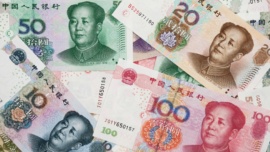The special characteristics of Macau, coupled with the strong capacities of Chinese state-owned companies will enable co-operation with local companies to “jointly conquer the international market” through bilateral co-operation in business and investments, Chief Executive Fernando Chui Sai On said yesterday.
According to the CE, the new development phase of the One Belt, One Road policy and the positioning of Macau as a platform between China and Portuguese-speaking countries will generate more opportunities for co-operation between Chinese state-owned enterprises, the MSAR Government and local companies.
“Macau will actively support lusophone countries’ industrial and commerce sectors to collaborate with SOE’s and China’s internal market,” he added.
The statements were made yesterday at Macau’s first Summit on the Construction of the Platform of Services for Commercial Co-operation between China and the Portuguese-speaking Countries of Macau supported by Chinese State-owned Enterprises, organised in co-operation with the Chinese State-owned Assets Supervision and Administration Commission of the State Council (SASAC).
According to the SASAC Party Committee Secretary, Hao Peng, the summit brought to the city 25 large scale SOE’s, with 20 having branches in Macau and a total value of business in the MSAR of RMB50 billion (MOP58.53 billion/US$7.33 billion) with profits of RMB5 billion.
“The One Road, One Belt initiative will be used to support the development of infrastructure in Portuguese-speaking countries . . . We’ll also speed up Greater Bay Area projects such as the Hong Kong-Zhuhai-Macau Bridge and look to develop Macau as a sustainable intelligent city,” he added.
During the event, six co-operation agreements were signed between lusophone and Chinese companies, with local businessman David Chow’s investment company Legend Globe Investment Co. Ltd. signing an agreement with the Cape Verde Government to develop a bank in the African country.
Elephants and ants
During a talk conducted afterwards on how to strengthen co-operation between SOEs and
lusophone countries several business representatives believed one of the challenges would be the imbalance in scale between “enormous” Chinese state companies and smaller lusophone
companies.
According to the Chairman of China National Building Material Group Co., Lda., Song Zhiping, of every three tones of cement used in the world one was supplied by the state-owned company, with the group supplying 65 per cent of the international market.
Meanwhile, Zhu Guanghcai, the Director of the International Co-operation Department for what is the world’s largest utility company – State Grid Corporation of China – said the enterprise had more than US$400 billion in total assets, registered almost US$13 billion in profits last year and supplied electricity to 1 billion people in Mainland China.
“Yesterday, I met a company with more than a million workers. That dimension has to be articulated with the companies of Portuguese-speaking countries,” said Rodrigo Brum, a consultant in Portuguese investment agency aicep Global Parques.
According to Mr. Brum – who will become a Forum Macao Deputy Secretary-general this year – “common ground” needs to be created to make these businesses possible, and work needs to be done to inform countries where SOE’s want to invest that these investments are not “conquering deals”.
“If taking into account the country dimension for calculations, Portugal has received the largest amount of Chinese investment in Europe per capita. This investment is not ownership investment but collaboration investment,” he said.
New eyes
The present SOE representatives also consider that although their companies have been present in the MSAR for many years they only recently started looking at the city as a way of connecting with business opportunities in Portuguese-speaking countries.
“We went to Macau many times but didn’t give the city much importance. However, after
exchanges with lusophone countries representatives we think the platform role is more and more important. There are more fiscal benefits for us and the new bridge will also improve the economic environment,” Mr. Guangchao said.
According to the SOE representative, Portuguese-speaking countries characteristics such as stable politics, rapid economic development, large markets and proximity to the sea made them profitable investment markets.
“We did this investment before but we never thought we could make connections through Macau. In the future, if we will deal with the eight lusophone countries in one place here there’ll be plenty of advantages,” he concluded.
—
Connection to the Atlantic
The summit was also attended by an infrastructure and construction delegation led by Portugal’s Secretary of State for Internationalisation, Jorge Costa Oliveira, who highlighted that with Portugal China’s third largest trading partner the country wanted to contribute to the development of Macau as an efficient business platform.
“We’re a strategic partner for the One Belt, One Road policy as we believe Sines Harbour is of great importance for opening a route to the Atlantic. The high-speed train connection between the
harbour and Madrid will also contribute to the Euro-Asian connection,” the Secretary of State said.
Connecting the Sines Harbour with international infrastructure planned by the One Belt policy, is one of the projects currently being evaluated for financing by the Fund for Development
Co-operation between China and Portuguese-speaking Countries.
























